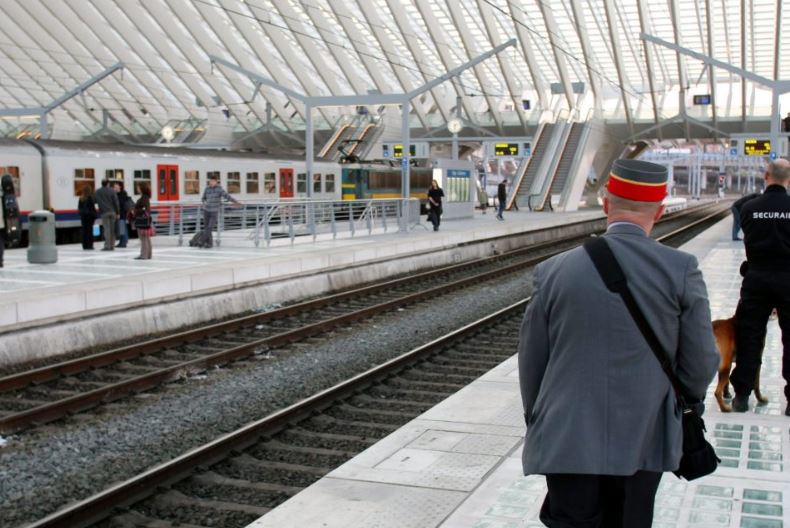Following another influx of people to Belgian train stations on Tuesday, the national rail company SNCB's CEO has called on people to avoid travelling by train to these destinations saying it is not the police, and cannot take on everything in these incidents.
On Tuesday, after a large number of commuters was seen gathering in large crowds in Brussels’ North and South stations, the railway company “strongly advised people” to refrain from travelling to the coast by train on that day and on Wednesday.
"We have a maximum offer, taking into account the sanitary rules. SNCB deployed a maximum number of trains this Tuesday while channelling passengers to comply with health regulations but it is not the police, and we alone cannot take on everything," SNCB boss Sophie Dutordoir told Le Soir on Wednesday.
The company had already planned 40 trains for Tuesday's peak hours to the sea, and three trains in reserve, to carry some 30,000 passengers, according to Dutordoir.
Related News
- Brexit & Covid-19: re-opened Mini-Europe tackles a huge year
- Google Maps will start showing most eco-friendly routes
- Free rail pass expires today – only 30% of free journeys used
The high number of passengers in Brussels stations on Tuesday forced SNCB to implement their “Stop and Go” procedure, making it possible to control occupancy in trains if the influx of passengers is too great and risks compromising safety.
Dutordoir recognised it is the company’s responsibility to "ensure that everyone has a seat without incident," but highlighted this is a "collective responsibility, which must lead all the links in the same chain to work together in these incidents to limit the influx of people to the stations."
“A broad appeal should be made to the population to warn them of what is going to happen, namely that capacity will be halved and that it will therefore be necessary to avoid too many people turning up at the same time to take the train,” said Dutordoir, adding "don't rush to the stations because places will be limited."
Lauren Walker
The Brussels Times

